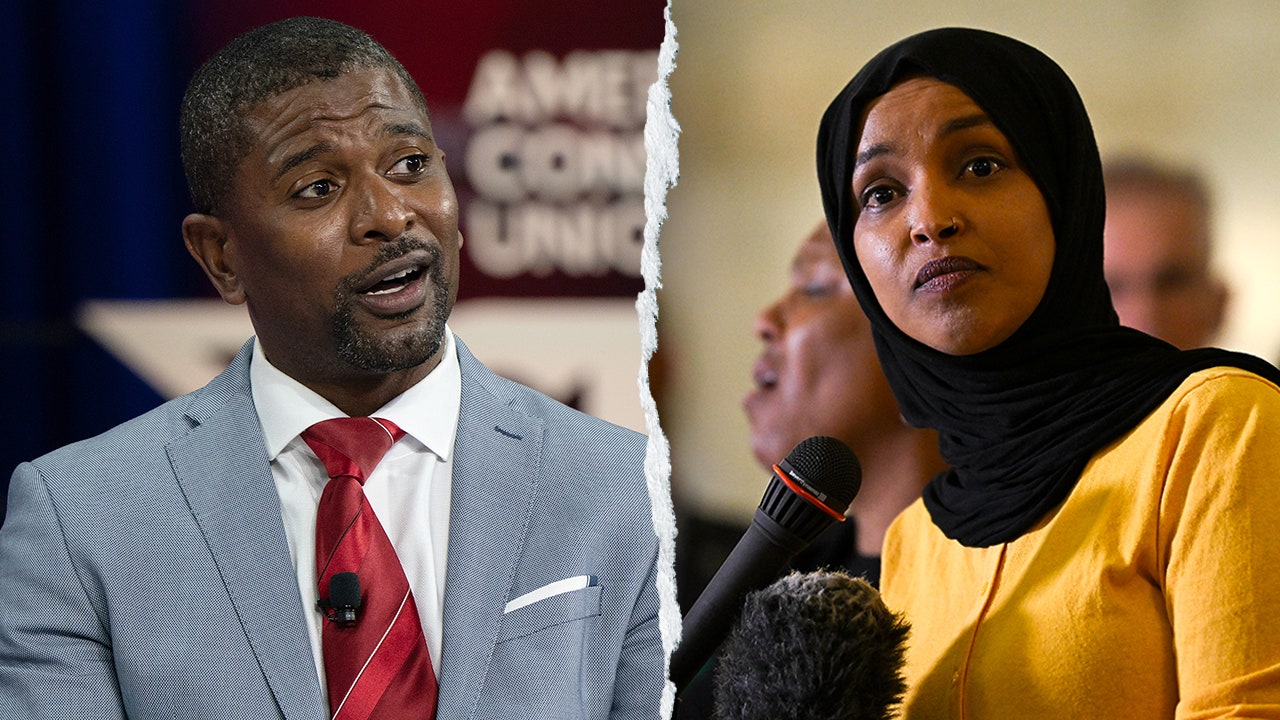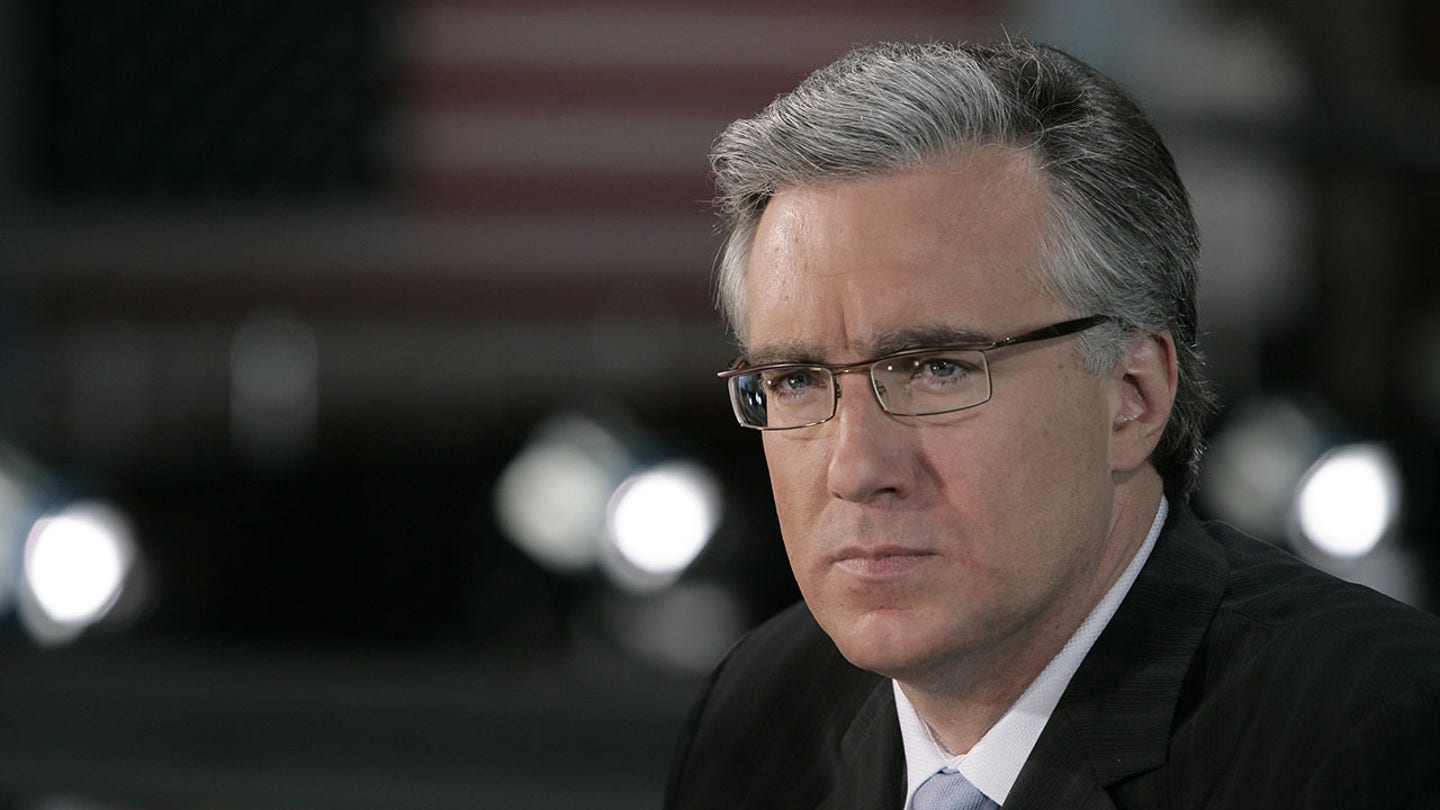
Top Dems silent after trans athlete they backed in SCOTUS case is accused of sexual harassment, intimidation
Entities mentioned:
- Congressional Democrats: Righteousness, Moral outrage, Unity
- Transgender Athletes: Justice, Recognition, Self-respect
- Female Student Athletes: Competitive spirit, Self-preservation, Justice
- ACLU: Justice, Duty, Professional pride
- Alliance Defending Freedom: Justice, Duty, Competitive spirit
Article Assessment:
Credibility Score: 65/100
Bias Rating: 70/100 (Lean Right)
Sentiment Score: 30/100
Authoritarianism Risk: 35/100 (Generally Democratic)
Bias Analysis:
The article leans right, focusing heavily on allegations against the transgender athlete and emphasizing conservative viewpoints. While it includes ACLU responses, it gives more space to perspectives critical of transgender participation in women's sports.
Key metric: Gender Equality in Sports
Let me tell you something - this story is a GAME-CHANGER! We've got a major faceoff between team 'Trans Inclusion' and team 'Biological Female Protection' heading into the Supreme Court showdown. The Democrats came out swinging with their amicus brief, but now they're on the defensive as allegations surface against one of their star players. This is a crucial fourth quarter play that could shift the momentum entirely! The transgender athlete's alleged actions in the locker room are like a devastating personal foul that could cost their team the game. Meanwhile, the female athletes are showing true championship mentality, stepping up to the plate to defend their turf. This matchup is going down to the wire, folks, and I'm telling you right now, the Supreme Court's ruling could be the buzzer-beater that decides it all!

Anti-Israel protests force Spanish basketball teams to ban fans as security fears mount
Entities mentioned:
- Real Madrid C.F.: Security, Obligation, Professional pride
- Maccabi Tel Aviv: Determination, Pride, Self-preservation
- Barcelona: Security, Obligation, Professional pride
- Anti-Israel protesters: Moral outrage, Justice, Indignation
- Benjamin Netanyahu: Loyalty, Recognition, Gratitude
- Donald Trump: Recognition, Legacy, Influence
Article Assessment:
Credibility Score: 75/100
Bias Rating: 55/100 (Center)
Sentiment Score: 30/100
Authoritarianism Risk: 35/100 (Generally Democratic)
Bias Analysis:
The article presents multiple perspectives, including those of Israeli and Spanish teams, as well as protesters. However, it gives more space to pro-Israeli viewpoints, particularly in the latter half.
Key metric: International Sports Security
Let me tell you something - this story is RIDICULOUS! We're seeing a full-court press of security concerns that's benching the fans in these high-stakes matchups. Maccabi Tel Aviv is playing an away game on their home turf, forced to take their talents on the road due to this geopolitical power play. It's like they're constantly playing defense, even off the court! Real Madrid and Barcelona are calling audibles, going into prevent defense mode by shutting out their own supporters. This is a game-changer, folks! We're witnessing a whole new playbook in sports diplomacy. It's fourth quarter, tensions are high, and these teams are having to step up to the plate in ways we've never seen before. This isn't just about putting points on the board anymore - it's about keeping the whole arena safe in this international championship of security chess!

NASCAR commissioner steps down following Michael Jordan's antitrust suit, backlash over hateful texts
Entities mentioned:
- Steve Phelps: Self-preservation, Pride, Professional pride
- Michael Jordan: Competitive spirit, Justice, Influence
- NASCAR: Control, Power, Self-preservation
- Richard Childress: Loyalty, Pride, Indignation
- Johnny Morris: Moral outrage, Loyalty, Influence
- Jim France: Control, Legacy, Unity
Article Assessment:
Credibility Score: 75/100
Bias Rating: 55/100 (Center)
Sentiment Score: 30/100
Authoritarianism Risk: 35/100 (Generally Democratic)
Bias Analysis:
The article presents multiple perspectives, including quotes from various stakeholders. While it leans slightly towards the teams' viewpoint, it maintains a relatively balanced approach in its reporting of the events and outcomes.
Key metric: Sports Industry Market Competition
Let me tell you something, folks - this is a GAME-CHANGER in the world of motorsports! NASCAR's commissioner Steve Phelps is hanging up his headset and stepping out of the pit box after a brutal legal battle that's shaken the very foundations of stock car racing. Michael Jordan, the GOAT himself, has just pulled off the equivalent of a last-lap pass for the win with this antitrust suit! We're talking about a power play that's left NASCAR's leadership spinning out like they've hit oil on turn four. Phelps got caught with his foot on the brake when those text messages came to light - a rookie mistake that's cost him his pole position in the sport. This is the kind of fourth-quarter fumble that changes dynasties, folks! NASCAR's now in a rebuilding season, and they'll need to bring their A-game to stay competitive in the high-stakes world of sports entertainment. It's crunch time for the Frances - they've got to rally the team, adjust their strategy, and prove they've still got that championship mentality. This shake-up is going to reverberate through the paddock for years to come!

Martina Navratilova under fire for calling Trump 'insane' and 'serial criminal' after Venezuela strikes
Entities mentioned:
- Martina Navratilova: Moral outrage, Justice, Righteousness
- Donald Trump: Power, Control, Ambition
- Nicolás Maduro: Power, Self-preservation, Control
Article Assessment:
Credibility Score: 70/100
Bias Rating: 55/100 (Center)
Sentiment Score: 35/100
Authoritarianism Risk: 45/100 (Mixed/Neutral)
Bias Analysis:
The article presents multiple viewpoints, including critics of Navratilova, but gives more space to her perspective. It includes context on Venezuelan celebrations, balancing the narrative.
Key metric: U.S. Foreign Policy Approval Rating
Let me tell you something - this story is HUGE! We've got a real heavyweight bout on our hands, folks! In one corner, we have tennis legend Martina Navratilova, swinging her verbal racquet with the force of a championship backhand! She's calling out President Trump like he's double-faulted on the world stage! But Trump's supporters are firing back, telling Navratilova to stay in her lane and stick to the tennis court! This is a classic matchup of athlete-turned-activist versus political powerhouse, and the crowd is going wild! The Venezuela situation is like a high-stakes tournament, with Trump making bold moves and Navratilova trying to call a fault on his play. It's fourth quarter, folks, and the scoreboard is lighting up with tweets and counterattacks. This is the kind of political rally that keeps fans on the edge of their seats!

Former Vikings captain Jack Brewer opens up about witnessing Minnesota's 'Somali elite' amid fraud revelations
Entities mentioned:
- Jack Brewer: Righteousness, Moral outrage, Patriotism
- Somali immigrants: Ambition, Influence, Self-preservation
- Minnesota government: Control, Obligation, Wariness
- Somali politicians: Power, Influence, Ambition
Article Assessment:
Credibility Score: 65/100
Bias Rating: 75/100 (Lean Right)
Sentiment Score: 25/100
Authoritarianism Risk: 55/100 (Mixed/Neutral)
Bias Analysis:
The article leans right, heavily emphasizing negative aspects of Somali immigration while giving less space to counterarguments. It relies heavily on one source (Brewer) who expresses strong anti-immigration views.
Key metric: Immigration and Welfare Fraud
Let me tell you something - this story is a GAME-CHANGER! We're seeing a major league shakeup in Minnesota's socio-economic playbook. The Somali community has come off the bench and is now dominating the field, but there are serious questions about whether they're playing by the rules. Jack Brewer, a former Viking captain, is blowing the whistle on what he sees as unsportsmanlike conduct. He's claiming some players are running an elaborate trick play, using taxpayer dollars to finance a lavish lifestyle. This isn't just a minor penalty, folks - we're talking about potentially BILLIONS in fraud! It's like watching a championship team suddenly get caught up in a massive doping scandal. The political arena in Minnesota has seen a changing of the guard, with Somali-American politicians now calling plays in key positions. But Brewer's sounding the alarm, saying this isn't just about fair play anymore - it's a whole new ballgame with international implications. This is the kind of fourth-quarter drama that could reshape the entire league - I mean, state - for years to come!

Ex-ESPN star Keith Olbermann calls for impeachment of Trump over Venezuela strikes that captured Maduro
Entities mentioned:
- Keith Olbermann: Moral outrage, Righteousness, Justice
- Donald Trump: Power, Control, Ambition
- Nicolás Maduro: Self-preservation, Power, Control
- U.S. Military: Duty, Determination, Professional pride
- House Democrats: Justice, Moral outrage, Duty
- Venezuelan Government: Self-preservation, Indignation, Pride
Article Assessment:
Credibility Score: 65/100
Bias Rating: 55/100 (Center)
Sentiment Score: 30/100
Authoritarianism Risk: 65/100 (Authoritarian Tendencies)
Bias Analysis:
The article presents multiple viewpoints, including Trump's actions, Democratic opposition, and Venezuelan response. While it quotes Olbermann's criticism prominently, it balances this with factual reporting on the events.
Key metric: U.S. International Relations Score
Let me tell you something - this story is RIDICULOUS! We've got a real heavyweight bout on our hands, folks! In the red corner, we've got Team USA led by Coach Trump, pulling off a shocking fourth-quarter blitz against Team Venezuela. But wait! There's a flag on the play! Olbermann, the veteran commentator, is calling for an instant replay and possible ejection of the U.S. Captain! This is the kind of high-stakes international game that could change the whole league standings! Trump's Hail Mary pass has captured Maduro, but at what cost? The Democrats are crying foul, saying Trump's playbook is way out of bounds! I'm telling you right now, this could be a game-changer for America's global standing. We're in sudden death overtime, and the world is watching to see if Team USA can stick the landing or if they've just fumbled on the international stage!

Mamdani gets mixed reactions for using Knicks star Jalen Brunson's signature celebration at inaugural speech
Entities mentioned:
- Zoran Mamdani: Recognition, Influence, Ambition
- Jalen Brunson: Competitive spirit, Professional pride, Determination
- New York Knicks: Control, Professional pride, Self-preservation
- Chris Manno: Indignation, Righteousness, Wariness
- Dr. Evil of Crypto: Moral outrage, Righteousness, Influence
Article Assessment:
Credibility Score: 65/100
Bias Rating: 55/100 (Center)
Sentiment Score: 35/100
Authoritarianism Risk: 30/100 (Generally Democratic)
Bias Analysis:
The article presents multiple viewpoints, including both criticism and praise for Mamdani's actions. However, it gives more space to critical voices, slightly tipping the scales towards a center-right perspective.
Key metric: Public Opinion and Political Support
Let me tell you something, folks - this is a RIDICULOUS play by Mayor Mamdani! He's trying to score points with the home crowd by channeling the Knicks' star point guard, but he's fumbling the ball big time! This political rookie is attempting a crossover move, borrowing Brunson's signature celebration, but he's getting called for traveling by the opposing team. I'm telling you right now, this is a classic case of a politician trying to be the LeBron of the Big Apple, but coming off more like a benchwarmer in the political arena. Mamdani's democratic socialist gameplan is facing full-court press from critics who are playing aggressive defense. It's fourth quarter time in NYC politics, and Mamdani needs to show he's got that championship mentality if he wants to win over the fans in the stands. Right now, he's looking like he might get ejected from the game before halftime!

LA Angels settle lawsuit with family of late pitcher Tyler Skaggs over fatal overdose
Entities mentioned:
- Los Angeles Angels: Self-preservation, Professional pride, Loyalty
- Tyler Skaggs: Ambition, Competitive spirit, Recognition
- Eric Kay: Greed, Power, Self-preservation
- Skaggs Family: Justice, Moral outrage, Determination
- Major League Baseball: Professional pride, Control, Security
Article Assessment:
Credibility Score: 75/100
Bias Rating: 50/100 (Center)
Sentiment Score: 35/100
Authoritarianism Risk: 20/100 (Strongly Democratic)
Bias Analysis:
The article presents a balanced view of the situation, including perspectives from both the Skaggs family and the Angels organization. It relies on factual information from court proceedings and official statements.
Key metric: MLB Player Safety and Substance Abuse Prevention
Let me tell you something - this is a GAME-CHANGING moment for Major League Baseball! The Los Angeles Angels have stepped up to the plate and settled this lawsuit, but the real MVP here is the Skaggs family, showing true championship mentality in their pursuit of justice. This isn't just about one player or one team, folks - it's about the INTEGRITY OF THE GAME! The Angels' defense was like a shaky bullpen, trying to hold onto a lead in the bottom of the ninth. But in the end, they couldn't close it out. Now, we're in EXTRA INNINGS, and it's time for MLB to step up to the plate. They need to bring their A-game and implement some SERIOUS reforms to protect players from these off-field dangers. This settlement is like a walk-off home run for player safety, but the league can't rest on its laurels. They need to keep swinging for the fences to ensure this kind of tragedy never happens again. I'm telling you right now, this is a PIVOTAL MOMENT for baseball, and how they respond will determine whether they're true champions or just another also-ran in the fight against substance abuse.
What To Know About Former Pro Basketball Players Getting College Eligibility
Entities mentioned:
- NCAA: Control, Power, Self-preservation
- Tom Izzo: Moral outrage, Professional pride, Competitive spirit
- Scott Drew: Competitive spirit, Ambition, Adaptability
- Rick Pitino: Indignation, Professional pride, Wariness
- Steven Pearl: Ambition, Competitive spirit, Adaptability
Article Assessment:
Credibility Score: 75/100
Bias Rating: 55/100 (Center)
Sentiment Score: 35/100
Authoritarianism Risk: 30/100 (Generally Democratic)
Bias Analysis:
The article presents multiple viewpoints, including both critics and supporters of the new eligibility rules. While it gives more space to critical voices, it still maintains a relatively balanced approach.
Key metric: College Basketball Competitive Balance
Let me tell you something - this story is RIDICULOUS! We're seeing a full-court press on college basketball's integrity, folks! The NCAA's rulebook is getting dunked on harder than a rookie in his first All-Star game. Coaches are crying foul as former pro players are getting a second wind in the college game. It's like we're watching a whole new league form right before our eyes! Tom Izzo is coming out swinging, calling for a technical on the NCAA's judgment. But hold onto your whistles, because some coaches like Steven Pearl are playing this like a savvy point guard, looking for any advantage in this new landscape. This is a game-changer, folks! We're talking about a seismic shift that could redefine the very essence of college hoops. It's fourth quarter, the shot clock is winding down, and the NCAA needs to make a play before this whole thing goes into overtime!

'Battle of the Sexes' tennis match sparks backlash from fans
Entities mentioned:
- Nick Kyrgios: Competitive spirit, Recognition, Pride
- Aryna Sabalenka: Competitive spirit, Professional pride, Determination
- Tennis Fans: Moral outrage, Loyalty, Righteousness
- Billie Jean King: Justice, Legacy, Influence
Article Assessment:
Credibility Score: 75/100
Bias Rating: 55/100 (Center)
Sentiment Score: 40/100
Authoritarianism Risk: 20/100 (Strongly Democratic)
Bias Analysis:
The article presents multiple perspectives, including criticisms and positive comments from players. It maintains a relatively neutral stance, leaning slightly left due to implicit questioning of the event's value for gender equality.
Key metric: Gender Equality in Sports
Let me tell you something - this 'Battle of the Sexes' match is causing a MAJOR UPROAR in the tennis world! We've got fans throwing flags on the play, questioning the integrity of this exhibition game. It's like they're watching a completely different sport out there, folks! Kyrgios and Sabalenka stepped onto the court, but it seems like they're playing on an uneven field - literally! With Sabalenka's court shrunk down like she's playing on a Little League diamond, this match has turned into a real head-scratcher. The organizers tried to level the playing field, but it looks like they've fumbled the ball on this one. This isn't the game-changing moment we saw back in '73 when Billie Jean King slam-dunked Bobby Riggs and changed the whole ballgame for women's tennis. No, sir! This match feels more like a pre-season scrimmage than a championship bout. But here's the kicker - both players are calling it a win! They're acting like they've just clinched the title, but the fans in the stands aren't buying what they're selling. It's a classic case of the athletes and the crowd watching two completely different matches. As we head into the fourth quarter of the tennis season with the Australian Open on the horizon, you've got to wonder if this publicity stunt will have any lasting impact or if it'll be quickly forgotten like a missed serve. One thing's for sure - in the high-stakes game of gender equality in sports, this match might've just scored an own goal!